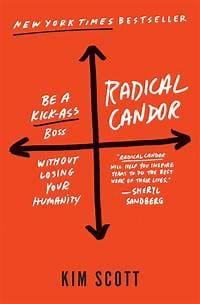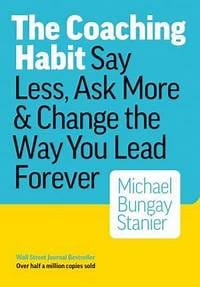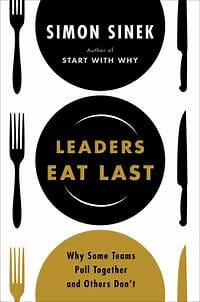A Business Case for Empathetic Leadership
In an age where command-control leadership is on the rise, empathy is often dismissed as weak. Yet, research and real-world cases demonstrate that trust, emotional intelligence, and psychological safety are key to high performance.

Josh Meier’s story stood out to me—not just because it mirrored my own experience, but because it exposed a growing leadership problem. Many organisations, influenced by today’s political and economic climate, are defaulting to rigid, top-down models, believing that control and efficiency ensure success. The truth? These approaches weaken teams, stifle innovation, and erode long-term impact.
Throughout my career, I’ve led high-performing teams based on trust, empowerment, and accountability. It’s proven practice that high-performing teams aren’t built on fear; they succeed when leaders create environments where employees take initiative, solve problems, and own their work.
The trend toward command-and-control leadership is accelerating, prioritizing quick wins over sustainable success. As Josh experienced, too many organizations treat people as resources rather than assets. The notion that strict leadership equals strength is both flawed and dangerously short-sighted. Real leadership isn’t about control—it’s about results. This article explores three examples—from military strategy to corporate success—that demonstrate why empathetic leadership is the most effective way to drive lasting impact.
But first, let’s do some research. These five books provide compelling evidence that leaders who cultivate trust, psychological safety, and inclusivity consistently build stronger, more resilient teams.





Building a business case for empathy
- Graham Allcott's 2024 book "Kind" delves into the significant impact of kindness on team performance and company culture, promoting empathy and a psychologically safe environment. Kindness in leadership is a competitive advantage, not a weakness.
- Dr. Corrie Block's 2023 book "Love @ Work" explores how integrating empathy into leadership practices can transform workplace culture and enhance organizational performance. The book reached the top of Amazon's bestseller list in the Management category in 2024. Cultures built on compassion and collaboration drive higher performance than those focused solely on efficiency.
- Kim Scott's 2019 edition of "Radical Candor" emphasizes the importance of caring personally while challenging directly, fostering open communication and collaboration within teams. A team member recommended her TEDx talk, and we ended up watching it multiple times with different colleagues.
"It is possible to say what you mean without being mean"
- Michael Bungay Stanier's 2016 book "The Coaching Habit" changes the perception of leadership from a top-down approach to a collaborative process, emphasizing the importance of empowering others by asking questions that stimulate thinking and problem-solving. Listening is a leadership superpower—great leaders ask questions, empower teams, and avoid micromanagement.
- Simon Sinek's 2014 leadership book "Leaders Eat Last" offers practical tips for improvement, drawing from themes like delegative leadership and advocating for a new model of team management. Trust and loyalty stem from servant leadership, not authority alone; great leaders create environments where people feel safe, valued, and motivated.
These books prove that empathy is not a soft skill—it is a leadership strategy. The following three examples illustrate how leaders who prioritize people over power consistently drive the best results.
Example 1. Empathy: an Underrated Weapon in the Army
Empathy is the most undervalued leadership skill, yet it is also the most critical. In rigid, high-pressure environments, it’s easy to overlook, but Lieutenant General Satish Dua of the Indian Army proves that empathy is not a weakness—it is a strategic advantage.
The power of genuine appreciation
In his TEDx talk, Why a Soldier Does What He Does, Gen. Dua explains how trust, appreciation, and human connection drive performance. As Corps Commander, he made a point to know his troops beyond their ranks—remembering their families, struggles, and aspirations. This wasn’t symbolic; it built trust and loyalty, ensuring peak performance under extreme pressure. Empathy, as Marques (2010) defines it, is the ability to relate to others’ feelings and understand their struggles—a skill that directly impacts leadership success.
This isn’t about “being nice” but about effective power utilization—a balance between hard power (command and authority) and smart power (influence and engagement). Smart leaders understand that coercion may force compliance, but it does not build commitment. By fostering buy-in, they ensure decisions are executed with motivation rather than mere obligation. Gen. Dua exemplified this during India’s 2016 Surgical Strikes, a high-stakes military operation. Rather than relying solely on top-down commands, he sought input from field commanders, ensuring adaptability, ownership, and precision. His approach mirrors Leaders Eat Last (Sinek) and The Coaching Habit (Stanier), both of which argue that great leaders empower their teams rather than dictate to them. Gen. Dua was known for discipline and high expectations—yet his troops exceeded them not out of fear, but because they knew he valued them as individuals. This reflects Radical Candor (Scott), which emphasizes that true leadership balances personal care with direct challenge.
The lesson? Empathy isn’t optional—it’s essential. Leaders who dismiss it may achieve compliance, but those who embrace it cultivate loyalty, resilience, and excellence. Even in the most hierarchical environments, smart power—anchored in empathy—is the ultimate force multiplier.
Example 2. Psychological Safety as a Performance Multiplier
In one of Google’s most extensive studies on team performance, Project Aristotle analyzed 180 teams over two years, examining 250+ team attributes to determine what makes teams thrive. The key finding? Psychological safety—where team members feel safe to speak up, take risks, and challenge ideas without fear—is the single biggest factor in high-performing teams.
If a company wants to outstrip its competitors, it needs to influence not only how people work but also how they work together
Despite today’s preference for rigid, high-pressure work cultures, Google’s research proved that psychological safety isn’t a “soft” leadership trait—it’s a competitive business strategy. Teams that fostered open dialogue and encouraged participation outperformed those with top-down leadership, regardless of individual talent. Employees in these environments were more innovative, faster at solving problems, and less likely to leave.
This aligns with Simon Sinek’s "Leaders Eat Last," which argues that people do their best work when they feel secure and valued. It also supports Kim Scott’s "Radical Candor," which reinforces that the best leaders care personally and challenge directly—creating environments where ideas, not egos, drive success.
Google’s findings prove a leadership truth: People perform best when they feel safe to contribute. Leaders who ignore this may enforce compliance, but those who embrace it unlock innovation, engagement, and sustained excellence.
Example 3. Future-Proofing Innovation: The Power of Emotional Intelligence
In a world where corporate success is often equated with efficiency and output, Rolls-Royce took a forward-thinking approach—investing in emotional intelligence as a strategic enabler. Through its The Real Me initiative, the company fosters a culture where employees feel safe bringing their full selves to work, reinforcing that diverse perspectives drive innovation, collaboration, and long-term performance.
In The Real Me series, employees discuss imposter syndrome, work-life balance, and neurodiversity. In the episode above, apprentice Toby, a second-year Materials Laboratories degree apprentice, shares his experience of navigating autism in the workplace, while senior leader Alex, Director of People Services, reflects on the challenges of returning to work after maternity leave. Their stories highlight the importance of psychological safety—the ability to express vulnerabilities without fear of judgment.
But The Real Me is more than just a cultural initiative—it’s a business strategy with tangible benefits:
- Higher engagement and retention – Employees who feel valued are more committed, reducing turnover and strengthening workplace culture.
- More innovation – When people feel safe to speak up, diverse perspectives lead to better ideas and smarter solutions.
- Stronger team performance – Trust and open communication enhance collaboration, increasing overall effectiveness.
- Inclusive leadership – Normalising conversations around well-being and neurodiversity helps develop leaders who foster resilience and adaptability.
- Alignment between business and human-centric values – A thriving workforce fuels long-term success, proving that supporting employees and demanding excellence go hand in hand.
The key takeaway? Emotional intelligence and inclusivity aren’t “soft skills”—they are the foundation of high-performing, future-ready organizations.
Why Empathy Wins?
The rise of autocratic leadership in some circles is a reaction to uncertainty, but long-term success in the modern era requires adaptability, emotional intelligence, and a commitment to empowering teams.
Gallup's "State of the Global Workplace: 2023 Report" highlights that disengaged employees cost the global economy $8.8 trillion annually, equivalent to 9% of global GDP. Disengaged employees cost businesses billions annually, meaning that leadership styles fostering trust and emotional connection lead to better performance.
According to a study by Development Dimensions International (DDI), involving over 15,000 assessment participants in leadership levels, empathetic leaders outperform their counterparts by 40% in overall team performance. This underscores the critical role that empathy plays in leadership and its direct impact on team effectiveness.
“Overwhelmingly, empathy tops the list as the most critical driver of overall performance. ”
In short, soft skills lead to hard results. In an unpredictable world, leaders who prioritize empathy don’t just create happier workplaces—they build stronger, more competitive organizations. The choice is not between "autocratic" leadership or "democratic" leadership"—the most effective leaders today embody both, balancing decisiveness with empathy, structure with trust, and authority with human connection.
P.S.
I found further inspiration in the 2018 Spanish film titled Campeones, directed by Javier Fesser. Several remakes in different languages have been made, including Bobby Farrelly's film Champions. It exemplifies the transformative power of empathy. Initially focused solely on winning, a basketball coach is assigned to lead a team of players with intellectual disabilities. Through this experience, he learns to value each player's unique abilities, fostering an environment of trust and mutual respect. This shift not only revitalized the team's performance but also reshaped the coach's understanding of effective leadership, highlighting that empathy is an essential component of true leadership.